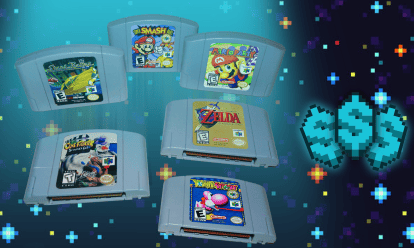
October 20, 2024
The Rarest and Most Expensive N64 Games in 2024
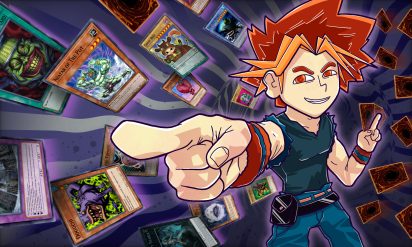
March 3, 2025
30 Funny, Terrifying and Weird Yu-Gi-Oh! Cards
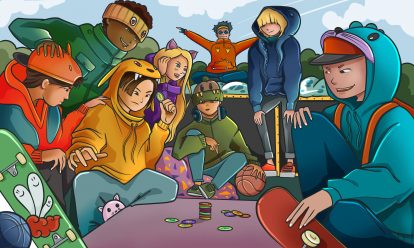
March 3, 2025
How to Play Pogs: Rules, Basics and Advanced Techniques
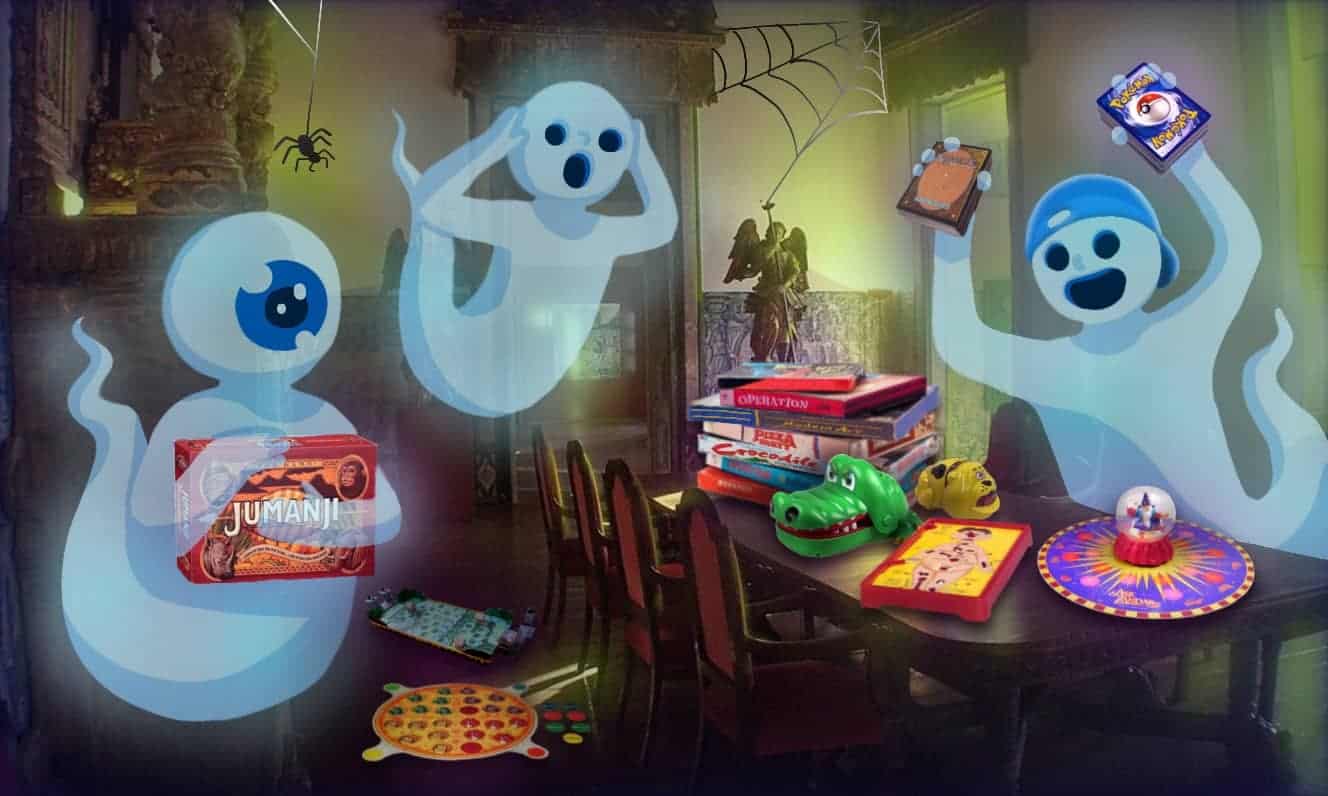
If you were a 90s kid, you probably have fond memories of evenings filled with the sound of rolling dice, shuffling cards, moving pieces, and no small amount of playful banter. While entries from prior decades (like Monopoly) were still popular, the 90s launched plenty of the greatest board games that we still play to this day. Get ready to revisit the crazy themes, inventive gameplay, kooky gimmicks, and intense strategy of the best 90s board games.
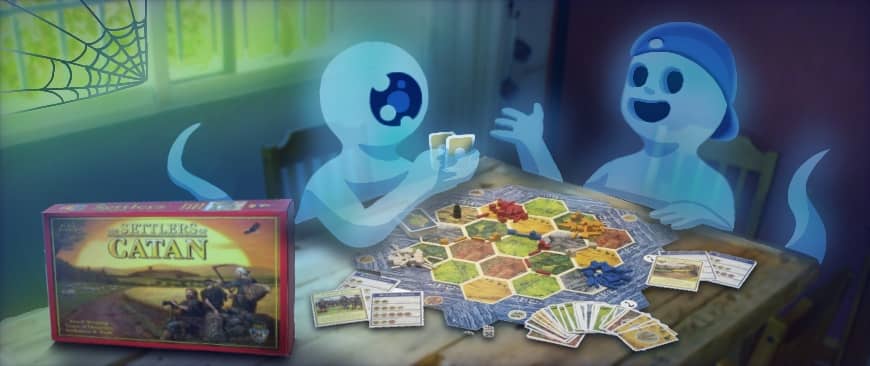
Designed by a former dental technician in Germany, The Settlers of Catan (also known as simply ‘Catan’ or ‘Settlers’) was a revelation for tabletop games.
Designed for 3-4 players, Catan has you collecting resources, trading goods, and building settlements as well as roads across the game’s fictional island, which is represented by hexagonal tiles. Catan was unlike any other tabletop board game when it was released in the mid-90s, and has since become a staple at parties and game nights worldwide.
As of 2024, Catan has sold over 40 million units in 30 different languages, making it one of the best-selling board games of all time. The game’s creator, Klaus Teuber, unfortunately passed away at the beginning of 2023 at the age of 70.
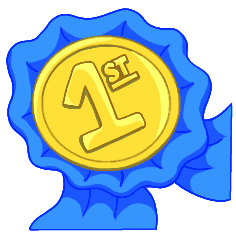
Fact
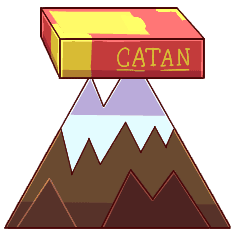
In 2019, Catan helped set the record for ‘highest altitude playing a board/party game’ when Canadians Amy Askes, Scott Askes, Jonathan Brett, and Riley Tighe played the game at the peak of Mt. Kilimanjaro.
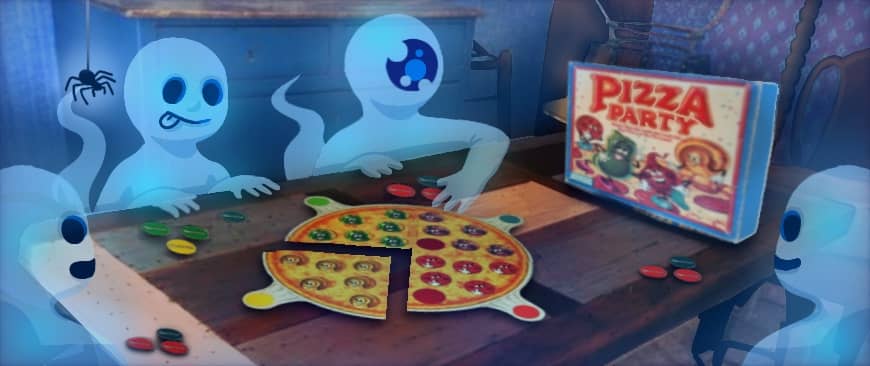
Pizza Party is your typical memory game… but with a tasty twist!
The legendary board game designers at Parker Brothers released Pizza Party in the late 80s, but most 90s kids fondly remember playing the game during their childhood.
Designed for up to four people, Pizza Party has you flipping over ingredient discs in an attempt to fill up all the topping slots. Think classic pizza fixings like pepperoni, mushrooms, green peppers, and onions. Yum!
Win or lose, Pizza Party gave you a strong hankering for a post-game slice.
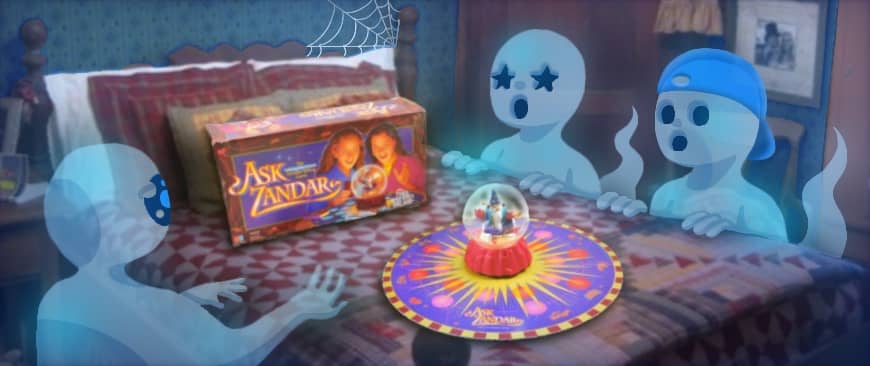
Ask Zandar is one of those old board games from the 90s that fascinated kids, even if they didn’t really understand the rules all too well.
In Ask Zandar, players draw a question card and guess whether Zandar (basically a talking Magic 8 Ball) will answer positively or negatively. If the fortune-seeking players guessed Zandar’s prediction correctly, they could take a gem of their color. The weirdest thing about this game – aside from the talking wizard – is the question cards.

Some of the darker questions include, “Will aliens kidnap me and make me their queen?”, “Will I invent chocolate flavored liver?” and “Do I have an evil twin?” among plenty of light-hearted questions like “Will I get an A+ on my next test?” and “Will I get a new pet?” The game was also clearly marketed at teenage girls with questions like “Will _________ ask me out?” and “Will I have to go to the prom with someone geeky?”
The prize for winning the game is to have a special fortune read by Zandar, for whatever that’s worth.
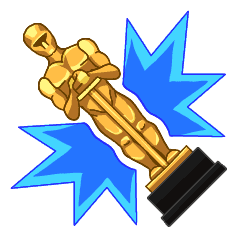
Fact
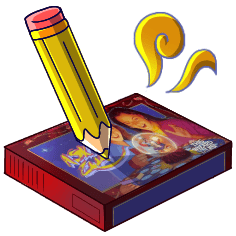
The cover art for Ask Zandar was created by Bill Mather, who would later win an Oscar for his work on Forrest Gump.
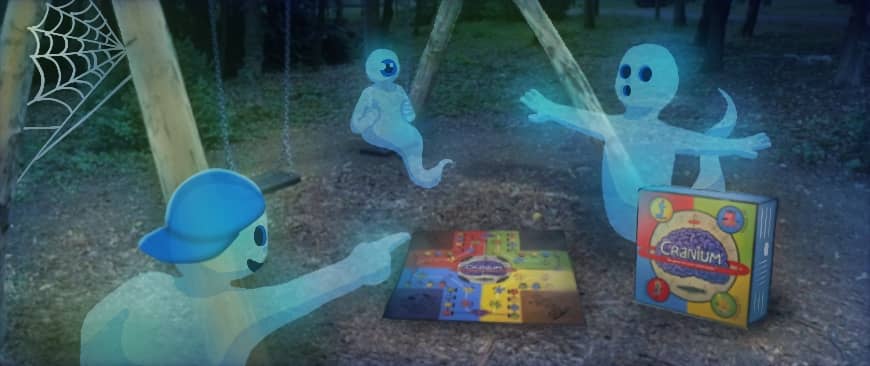
Marketed as “The Game for Your Whole Brain”, Cranium is the all-in-one trivia game that blends art with common knowledge. Published by Hasbro in 1998, Cranium combined the best elements of other throwback games like Trivial Pursuit, Pictionary, Rapidough, Scrabble-style puzzles, and Charades.
Cranium had such a wide variety of activities that all age groups could participate and have a good time. On your turn, you could be guessing anything – from which object your teammate is sculpting out of clay, to decrypting a scrambled word, or even trying to guess which song your teammate is whistling. Remaining extremely popular, it has helped win the creators over 130 awards, and there have been countless spinoff versions of the game developed over the decades.
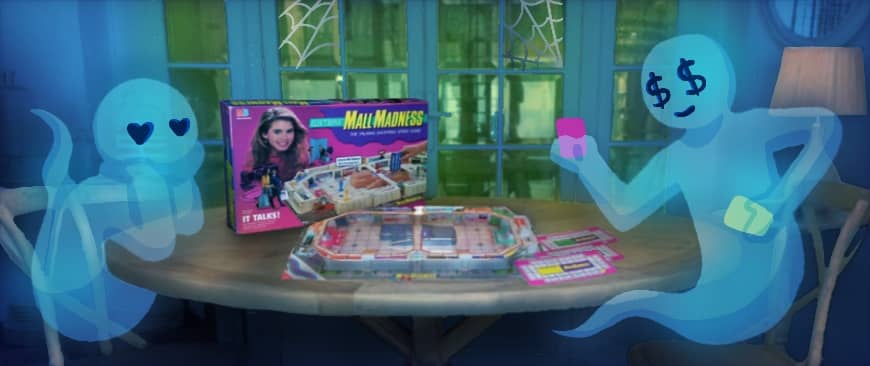
Mall Madness absolutely radiates 90s culture.
This original shopping-themed board game by Milton Bradley was released in 1988, but the game spiked in popularity in the early 90s after the electronic talking version came out in 1989. The goal of the game is to collect all of the items on your shopping list from 22 stores, including I.M. Coughin Drug Store, Sunglass Boutique, Aunt Chovie’s Pizza, and 2 Left Feet Shoes, and then make it back to the car.
Like Dream Phone (also created by Milton Bradley), Mall Madness is one of several board games from the 90s that endured into the 2000s and beyond. The game was redesigned multiple times in its 33-year history, including special-edition Hannah Montana (yes, really) and Littlest Pet Shop versions.
Strangely, the game disappeared from store shelves for over 15 years before the latest version was released in 2020.
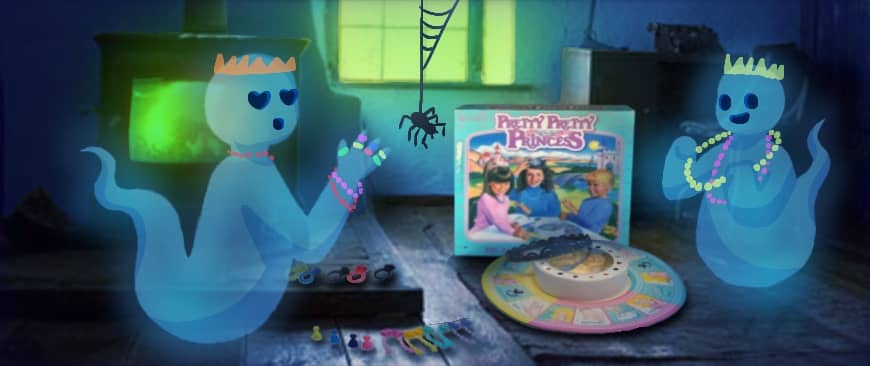
Pretty Pretty Princess is a classic jewelry dress-up game that makes players feel like royalty.
Geared towards young girls, Pretty Pretty Princess was a simple, fun game that didn’t require any reading or complex counting skills. Players have to collect the kid-sized jewelry pieces on each round in an attempt to collect a complete set. To win the game, you had to collect all your colored jewelry and the coveted princess crown. Because, as we’re sure you’re aware, every pretty princess needs her crown!
Can’t find your vintage Pretty Pretty Princess box? Don’t fret, Hasbro sells new versions of Pretty Pretty Princess.
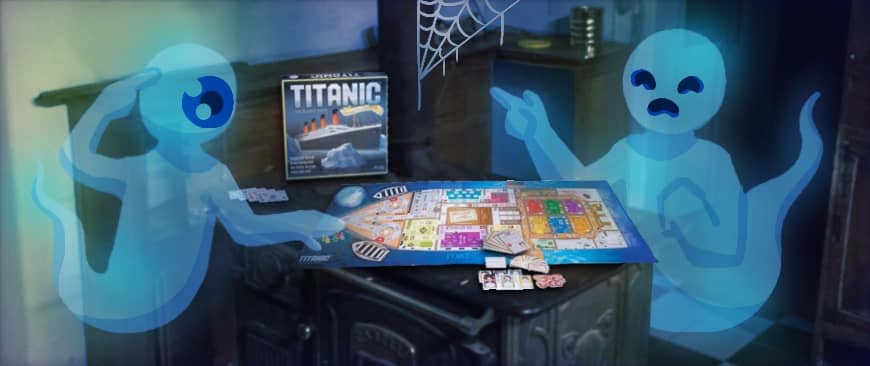
Up next is Titanic: The Board Game.
Unfortunately, like the ship it was based on, this 90s board game wasn’t very successful despite how popular the film adaptation was in the late 90s.
However, many who remember playing it rank it as one of their favorite board games from the 90s. The game features an unrealistic depiction of the 1912 tragedy where players race to a lifeboat as the ship sinks. On the way, players must collect random items like a life vest, passport, and room key. Failing to make it to the lifeboat in time means a watery doom, and probably some teasing.
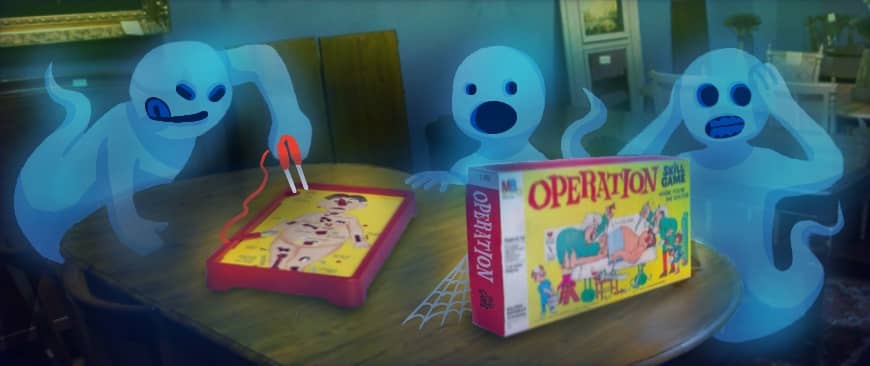
Although Operation dates back to the 1960s, we had to add it to our 90s board games list since it was beloved by so many kids in that decade.
This timeless classic was invented in 1964 by University of Illinois industrial design student John Spinello, who sold the rights to the game for a measly $500. To date, the Operation franchise is estimated to be worth a heart-stopping $40 million – enough to make Spinello actually swallow his Adam’s apple.
The family game-night staple comes with an “operating table,” and the objective is to remove “Cavity Sam’s” various plastic ailments like his wishbone, charley horse, stomach butterflies, broken heart, and Adam’s apple with a pair of tweezers – all without touching the metal edge of the cavity. If you touch the edge, it triggers the buzzer and makes Sam’s red nose light up – indicating you’ve failed the operation. Nice one, doc!
Due to its immense popularity, this 57-year-old board game is still in production. And, in 2020, Hasbro introduced a new variation on the game called Operation Pet Scan, where players have to remove objects from a pup.
Because operating on a human wasn’t stressful enough!
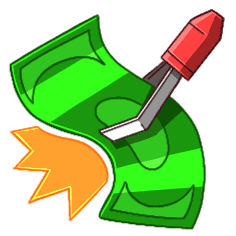
Fact

In 2014, Spinello needed to undergo surgery that cost around $25,000, but since he wasn’t getting royalties from the game he invented, he couldn’t afford it. Thankfully, in a heartwarming twist of irony, fans pulled together to crowdfund his operation.
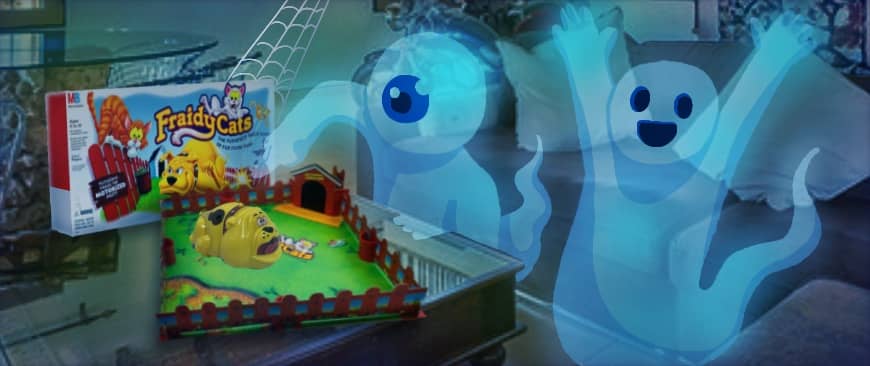
Who remembers Fraidy Cats by Milton Bradley?
This exciting kids’ board game mixed luck, nimble cats, and ravenous dogs into one fun package! Roll the dice, push your cat forward, avoid an erratically moving motorized bulldog, and repeat – what’s not to love?
While the game feels very basic in hindsight, Fraidy Cats had just the right amount of gimmick to make it a memorable 90s board game.
Plus, everyone loves cats.
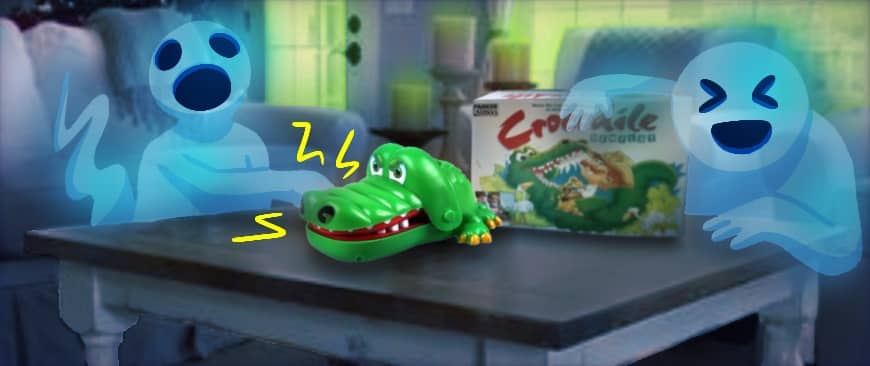
Next up on our trip down memory lane is none other than the iconic Crocodile Dentist.
This was the game where players had to take turns pulling teeth from a crocodile’s mouth while being on high alert. Pulling the wrong tooth would cause the croc’s mouth to snap shut on your dental pliers – or fingers, if you lived on the edge.
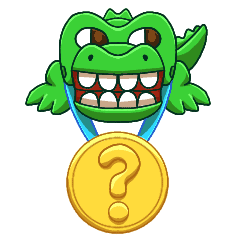
Fact
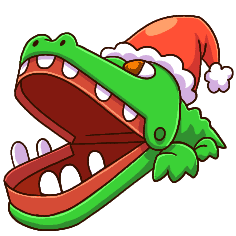
Even though Crocodile Dentist was one of the stranger board games of the 90s, it was one of the best-selling during the 1991 Christmas season. It even won an award in 1992 from the ‘Bizarre Toy Awards'!
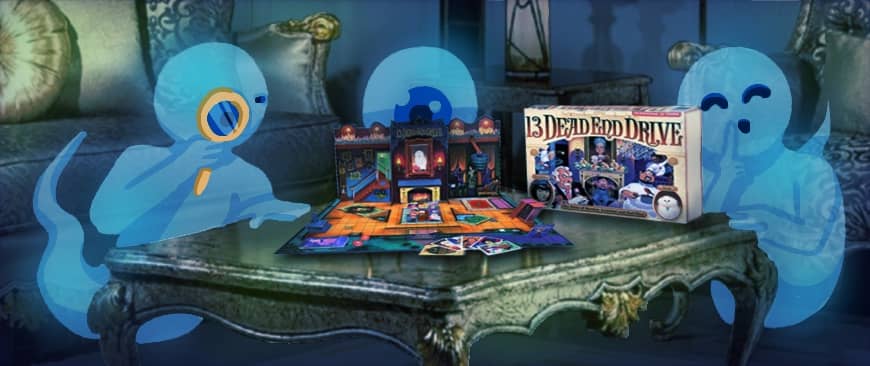
13 Dead End Drive was an introductory bluffing game for many 90s kids.
The game centers around the death of wealthy family matriarch Aunt Agatha, and players compete to inherit Agatha’s fortune. The key was to avoid other players’ booby traps around the house while using your own to “kill off” your inheritance rivals in a bid to claim the wealthy old woman’s estate and win the game.
The success of 13 Dead End Drive inspired Milton Bradley to release a spinoff in 2002 called 1313 Dead End Drive, both of which are still available today.
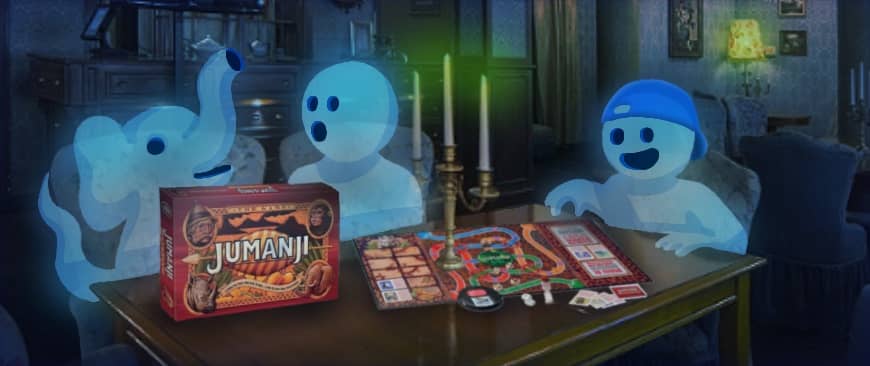
Inspired by the 1995 movie, Jumanji is a classic fantasy game created to allow you to relive that 90s movie magic in the comfort of your own home.
Milton Bradley released the game shortly after the cult-favorite film came out, and both the movie and the board game revolve around Chris Van Allsburg’s picture book from 1981.
The actual gameplay is relatively simple, but sadly no wild animals will suddenly pop out to destroy your living room. Instead, a dice roll determines if the jungle will overtake the players before they finish the game. The first player to reach the center before the Doomsday Grid fills up wins, but only after yelling ‘Jumanji!’
An updated version of this throwback game was released in 2017 by Cardinal Games. Just remember, “Don’t begin the game unless you intend to finish it.”
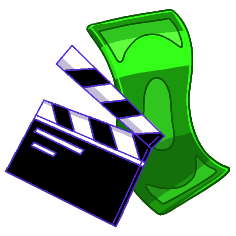
Fact
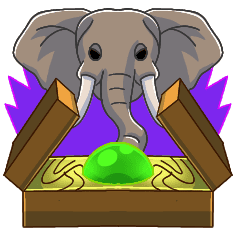
In 2014, the actual Jumanji board game used in the movie sold on eBay for a cool $60,800.
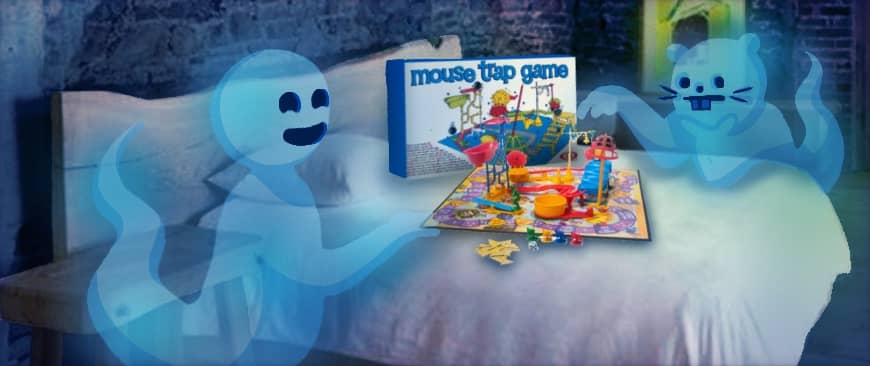
While originally released in the early 60s, a 90s reprint ensured the classic mouse trap gameplay would be enjoyed by a new generation of kids.
The goal was to build a Rube Goldberg-type machine to trap the cartoon mouse in an elaborate cheese trap of doom. The first player to capture everyone else’s mouse is the winner.
Milton Bradley cranked out some really catchy commercials for Mouse Trap throughout the decade, and while there may not be any new ads for it, Mouse Trap is still being sold in stores 58 years after its original release.
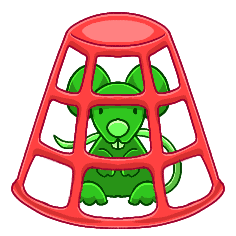
Fact
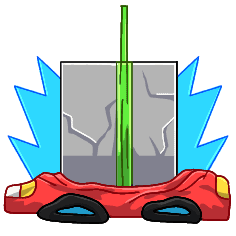
In 2005, Mouse Trap enthusiast Mark Perez created a life-sized version of the game capable of crushing a car.
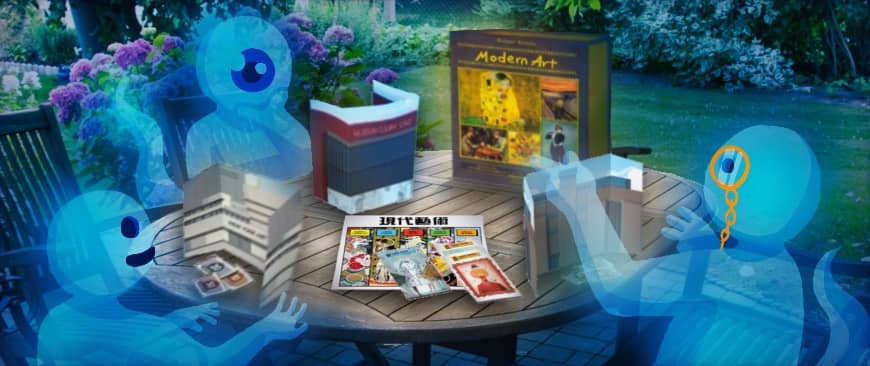
Buy and sell priceless paintings to make a buck!
One of the most interesting 1990s board games, Modern Art, sets players up as gallery owners and art connoisseurs buying and selling valuable paintings to turn a profit. The works of art are the playing cards, and players must put one up for auction each round.
Auctions include open bidding, fixed-price sales, secret ‘sealed’ bids, and rounds where players have one shot to present their highest offer. After four rounds, the player with the most money wins.
While Modern Art was a hit upon its release in 1992, some critics claimed the game’s own artwork was anything but beautiful, with some even dubbing it “the most unsightly game ever made.” The makers of Modern Art took notice, and later editions of the game included real-life paintings by contemporary artists.
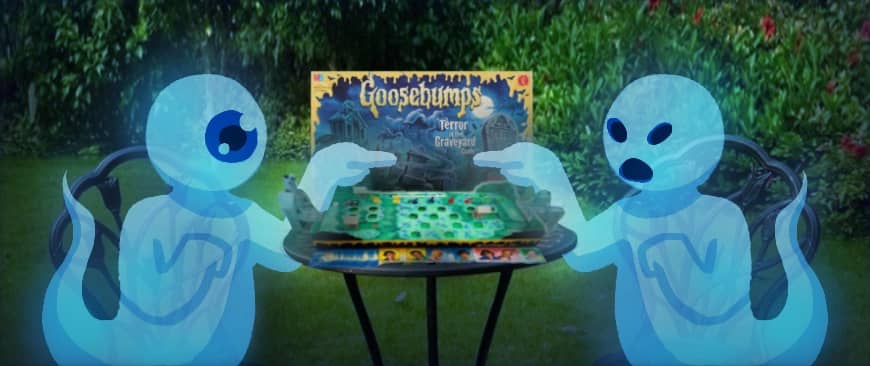
If you’re a 90s kid, there’s no doubt you owned a few Goosebumps books. BUT, did you ever play the board game?
Cashing in on the success of the iconic children’s horror novels, Milton Bradley released Goosebumps: Terror in the Graveyard so kids could enjoy even more good old-fashioned scares.
The game board resembles a creepy graveyard with hedges, moving tombs, and a crypt containing a headless ghost – which players would have to defeat in order to win. The game is controlled by a dice roll where players attempt to foil the competition by drawing cards that allow them to turn other players into monsters, steal cards, and move others into dangerous spaces.
Unfortunately, Goosebumps: Terror in the Graveyard is no longer in print. However, you can still find vintage versions of this 1990s board game on sites like eBay or Etsy if you’re desperate to dig up this spooky relic. We have seen sealed versions available for around $100, but used games can sell anywhere from $20 to $60.
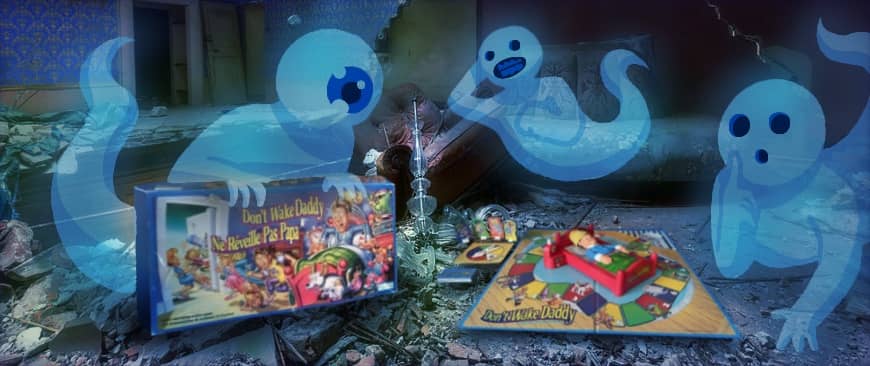
Another nostalgic game from Parker Brothers, Don’t Wake Daddy had players sneaking around the board in an attempt to grab a midnight snack without waking their apparently single father.
Introduced to toy shelves in 1992, it quickly became one of the hottest board games of the Christmas season and is still available today.
The rules are simple. Made for up to four players, ‘sleeping daddy’ lies in the middle, and movements around the board are determined by a spinner landing on your pre-chosen color. The board holds ‘noise’ spaces such as rollerblades, baseballs, a clown on TV, and a cuckoo clock, and if your color lands on one of these, the player who made the ‘noise’ must press the button on the alarm clock next to the snoozing parent a certain number of times. If you’re the unlucky one to push the alarm clock too far, it’ll go off, suddenly jerking Daddy awake and sending the offender back to the start. The first player to make it over the finish line and to the refrigerator is declared the winner and claims victory – the ultimate midnight snack.
We recommend playing this one with lots of real snacks readily available.
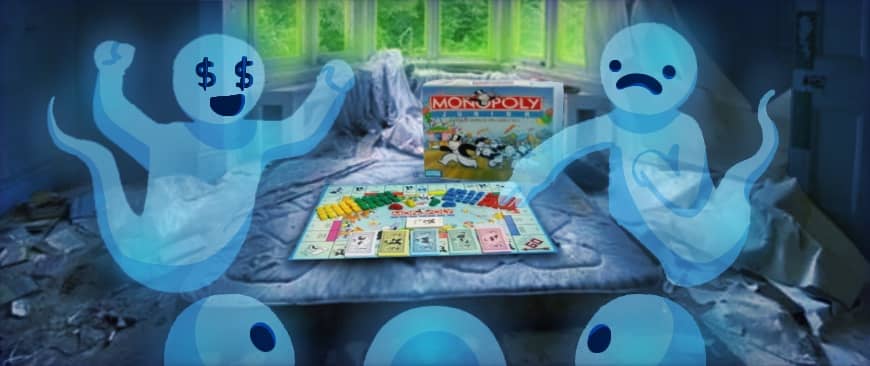
Teach your kids to become real-estate tycoons!
Rounding out the list of our favorite games from the 90s is the kiddie version of the game everyone loves to hate – Monopoly. A simplified version of the original, Parker Brothers released Monopoly Junior at the beginning of the decade, backed up with a strong marketing campaign.
Monopoly Junior was created for kids between the ages of five and eight. Rather than using street names (like the original), the game features child-friendly attractions like a zoo, a video game arcade, and the quintessential 90s pizzeria.
In 2013, Parker Brothers revised the game again to modernize the look, and today, Monopoly Junior has capitalized on every trend with themed releases from Frozen, Peppa Pig, Cars, and even Finding Nemo.
While they’re not technically board games, the list didn’t feel complete without including these legendary trading card games…
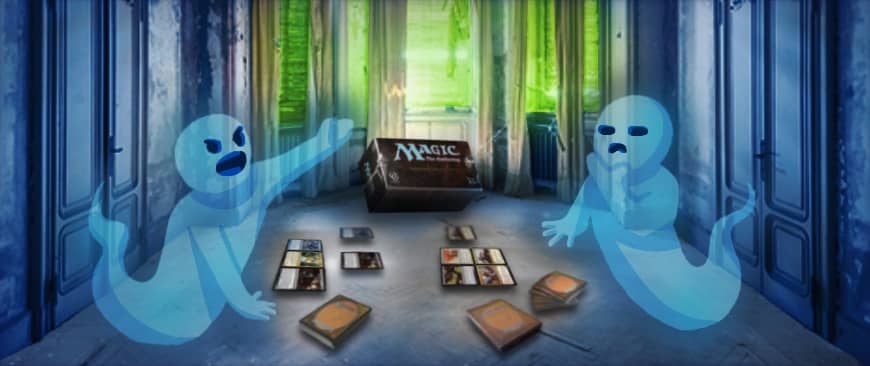
The first trading card game, Magic: The Gathering was released in the early 90s and still has a massive cult following nearly 30 years later.
MTG introduced 90s kids to the thrill of opening a sealed pack of cards hoping for the best ones, combining the appeal of collecting cards with intense head-to-head battles. This competitive fantasy-themed game includes a host of magical creatures and spells where players compete to defeat their opponents by building up lands (mana), to play legendary creatures, spells, and other items and abilities.
The brains behind MTG is famed game designer Richard Garfield, who is also responsible for Netrunner, another legendary 90s card game. MTG still has millions of loyal fans who regularly play online or in person all over the world.
Despite the success, this promotional video for MTG Ice Age did not age well…
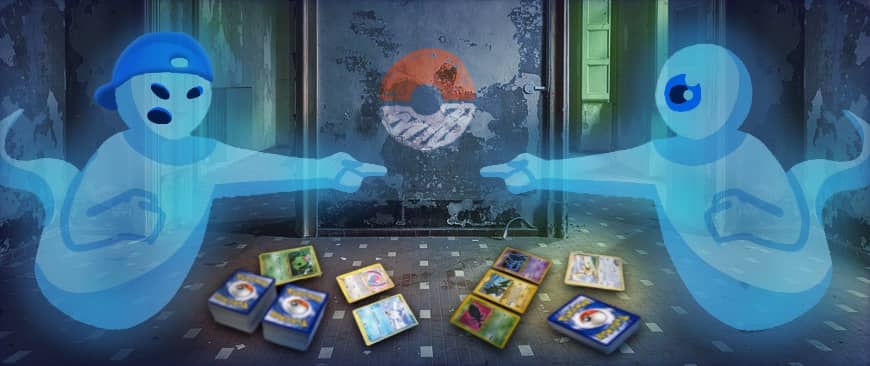
If kids of the 90s shared anything, it was a love of Pokémon.
The franchise infiltrated classrooms, took over morning television, and was social currency for a generation. The TCG was hatched in 1996 by Media Factory (Japan) and initially released in the US by Wizards of the Coast (1998). These tabletop trading cards adapted the original Game Boy RPG and became a collectible sensation.
90s kids everywhere collected Pokémon cards hoping to get their hands on rare cards and a coveted ‘shiny.’ Some first-edition cards are now worth hundreds of thousands of dollars (check out our guide to the rarest and expensive Pokémon cards). Did you keep yours in mint condition? Bet you wish you did!
Whether you bought them to collect and keep in pristine folders, or were actively living out your Ash Ketchum dreams by dueling friends – nearly every kid in the 90s loved Pokémon cards.
This obviously wasn’t every board game released in the 90s, but these are some of the ones we think were the best. What are some of your favorites? Let us know in the comments!
For more board games, action figures, video games, and all things 90s, you can follow Rediscover 90s Toys on Instagram, Pinterest, and all our other social media pages.

Lee is curator of nostalgia and a long-time collector of loveable junk. An 80s baby, 90s kid, he knows he had it good when it came to Saturday morning cartoons. Spends his life trying to recapture the dopamine hit of playing Game Boy for the first time and believes Beanie Babies will make a fortuitous comeback. Obsessed with everything (and anything) retro, he is your trusted guide to a world of 90s toys, games and collectables.
Check it out!

October 20, 2024
The Rarest and Most Expensive N64 Games in 2024

March 3, 2025
30 Funny, Terrifying and Weird Yu-Gi-Oh! Cards

March 3, 2025
How to Play Pogs: Rules, Basics and Advanced Techniques